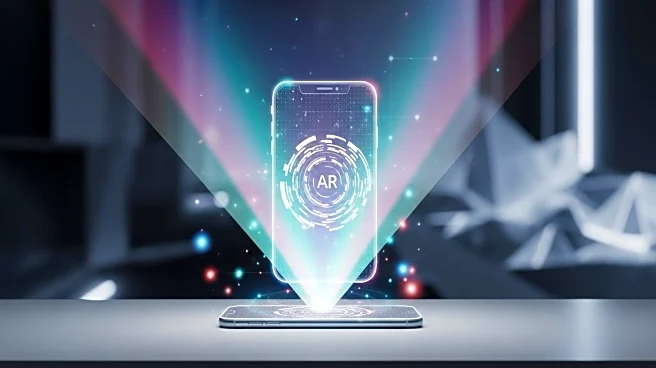What's Happening?
In 2025, significant advancements in augmented reality (AR) technology are poised to reshape the smartphone and app landscape. Meta's recent demonstrations of Orion and Ray-Ban smart glasses, along with Apple's shift in focus from Vision Pro to smart glasses, highlight the industry's move towards wearable AR devices. These developments promise to enhance user experiences with improved visual fidelity and pass-through AR capabilities. The introduction of wristband controllers and lighter displays aims to make AR technology more accessible and practical for everyday use. As companies race to innovate, consumers and developers face new challenges and opportunities in adapting to these changes.
Why It's Important?
The evolution of AR technology represents a pivotal shift in how consumers interact with digital content, potentially reducing reliance on traditional smartphones. This transition could lead to faster device cycles and increased demand for AR-compatible apps, impacting developers and tech companies. Privacy and user experience considerations will become increasingly important as AR devices integrate more deeply into daily life. The competitive landscape among tech giants like Meta and Apple may drive further innovation, benefiting consumers with more advanced and affordable AR solutions.
What's Next?
As AR technology continues to advance, consumers can expect more options in wearable devices, potentially leading to widespread adoption. Developers will need to adapt to new UX paradigms, focusing on glanceable interfaces and privacy features. Regulatory discussions around data privacy and advertising in AR environments are likely to intensify, influencing industry standards and practices. The market may see increased collaboration between tech companies and app developers to create seamless AR experiences.
Beyond the Headlines
The rise of AR technology raises ethical questions about data collection and user consent in immersive environments. It also challenges cultural norms around technology use, as wearable devices become more integrated into social interactions. Long-term, AR could redefine personal computing and entertainment, influencing how individuals engage with digital content and each other.









